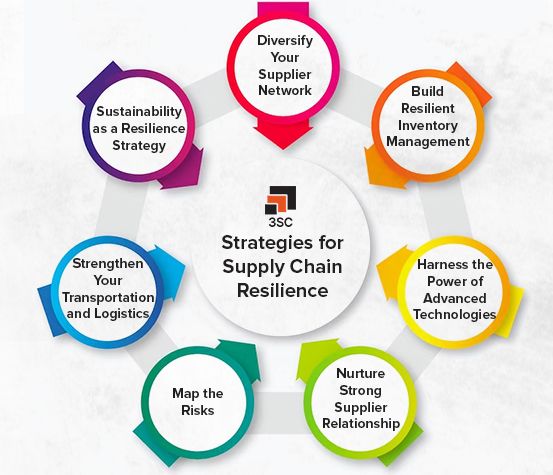What Is Supply Chain Management? A Beginner Guide
In the world of technology, supply chain management plays a crucial role in ensuring the smooth and efficient flow of products from manufacturers to consumers. But what exactly is supply chain management? In this beginner’s guide, we will explore the basics of supply chain management and why it is essential for businesses in the tech industry.
The Basics of Supply Chain Management
Supply chain management is the process of managing the flow of goods, services, and information from the initial raw materials to the final delivery of the product to the end customer. This involves coordinating various activities such as sourcing, procurement, production, warehousing, logistics, and distribution to ensure that products are delivered in a timely and cost-effective manner.
Why Is Supply Chain Management Important in the Tech Industry?
In the rapidly evolving world of technology, supply chain management is crucial for businesses to stay competitive and meet the ever-changing demands of consumers. With the increasing complexity of tech products and the global nature of the industry, effective supply chain management is essential to streamline operations and reduce costs.
By optimizing the supply chain, tech companies can improve efficiency, reduce lead times, minimize inventory costs, and enhance customer satisfaction. This ultimately leads to a competitive advantage in the market and helps businesses stay ahead of the curve.
Key Components of Supply Chain Management
There are several key components of supply chain management that businesses in the tech industry need to consider:
1. Sourcing and Procurement
Sourcing involves finding and selecting suppliers who can provide the necessary raw materials or components for tech products. Procurement, on the other hand, involves negotiating contracts, managing supplier relationships, and ensuring that the right materials are delivered on time and at the right price.
2. Production
The production phase involves manufacturing tech products using the sourced materials. This includes coordinating with suppliers, managing production lines, ensuring quality control, and optimizing production processes to meet demand.
3. Warehousing and Logistics
Warehousing and logistics are crucial for storing products, managing inventory, and transporting goods to distribution centers or directly to customers. This involves maintaining accurate inventory levels, optimizing warehouse operations, and coordinating with transportation providers for efficient delivery.
4. Distribution
The distribution phase involves delivering products to customers through various channels such as retailers, e-commerce platforms, or direct sales. This involves managing distribution networks, optimizing delivery routes, and ensuring timely and accurate order fulfillment.
Challenges in Supply Chain Management
While supply chain management is essential for the success of tech businesses, there are several challenges that companies may face:
1. Globalization
The global nature of the tech industry can make supply chain management more complex due to factors such as international regulations, cultural differences, and geopolitical risks. Companies need to adapt to changing market conditions and disruptions to ensure the continuity of their supply chain.
2. Supply Chain Disruptions
Disruptions such as natural disasters, pandemics, and political unrest can disrupt the supply chain and impact the availability of raw materials or finished products. Companies need to have contingency plans in place to mitigate risks and ensure business continuity.
3. Technology and Innovation
The rapid pace of technological advancements and innovation in the tech industry can create challenges in supply chain management. Companies need to adopt new technologies such as AI, blockchain, and IoT to optimize their supply chain and stay ahead of competitors.
Conclusion
Supply chain management is a critical aspect of the tech industry that ensures the smooth flow of products from manufacturers to consumers. By optimizing the supply chain, businesses can improve efficiency, reduce costs, and enhance customer satisfaction. With the right strategies and tools in place, companies can stay competitive in the ever-changing world of technology.
For more information on supply chain management in the tech industry, stay tuned for our upcoming articles on best practices and trends in the field.


